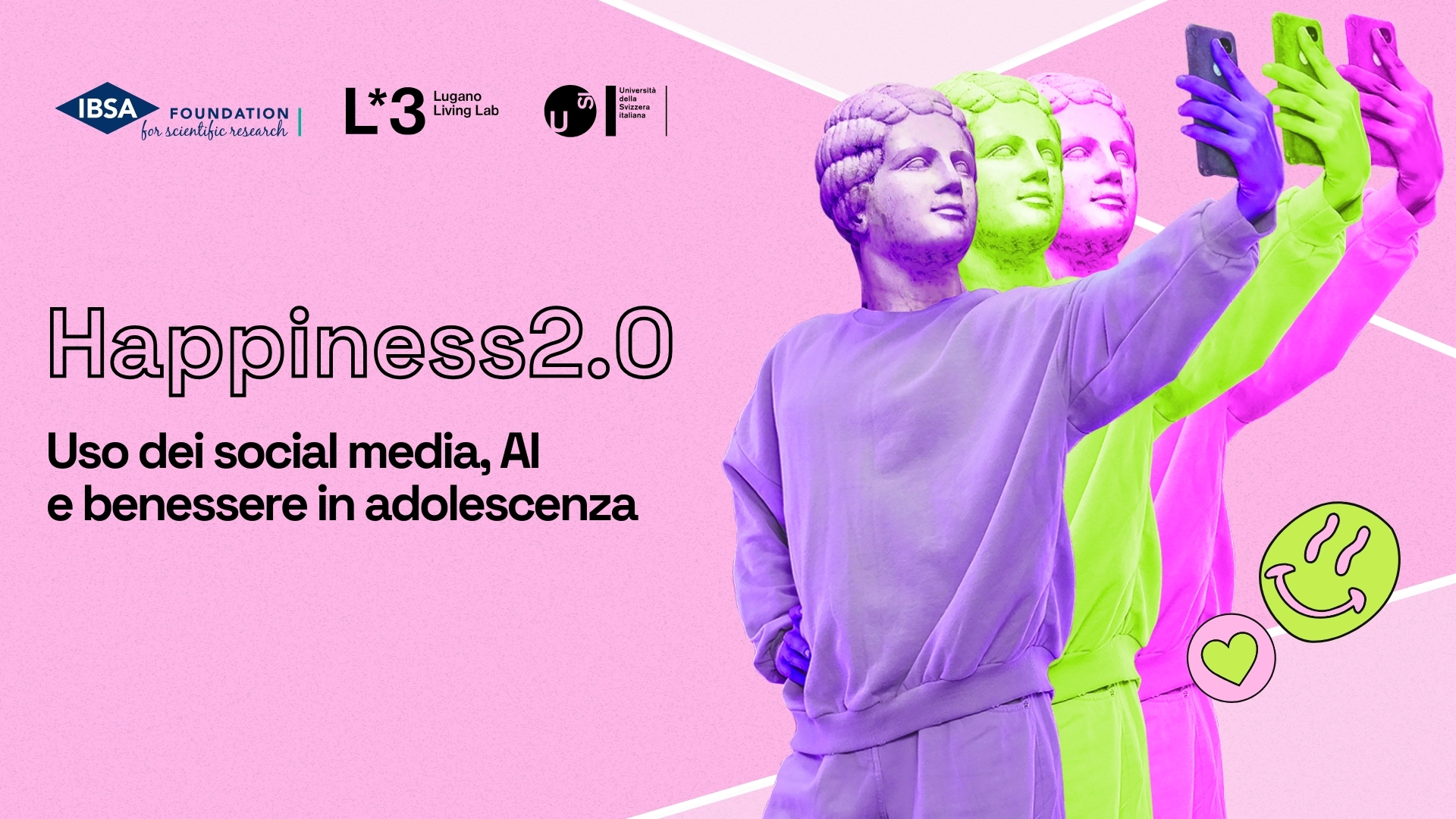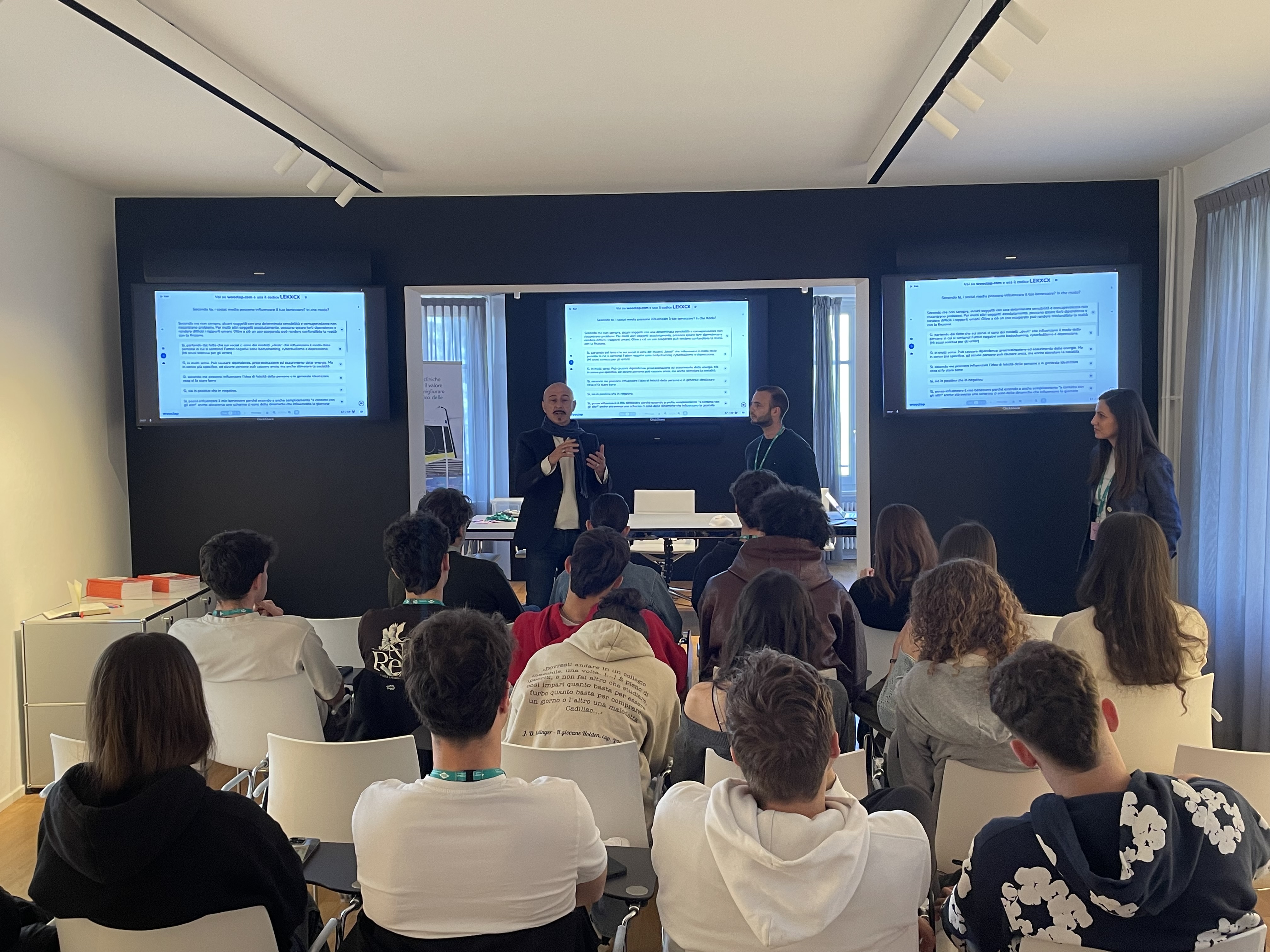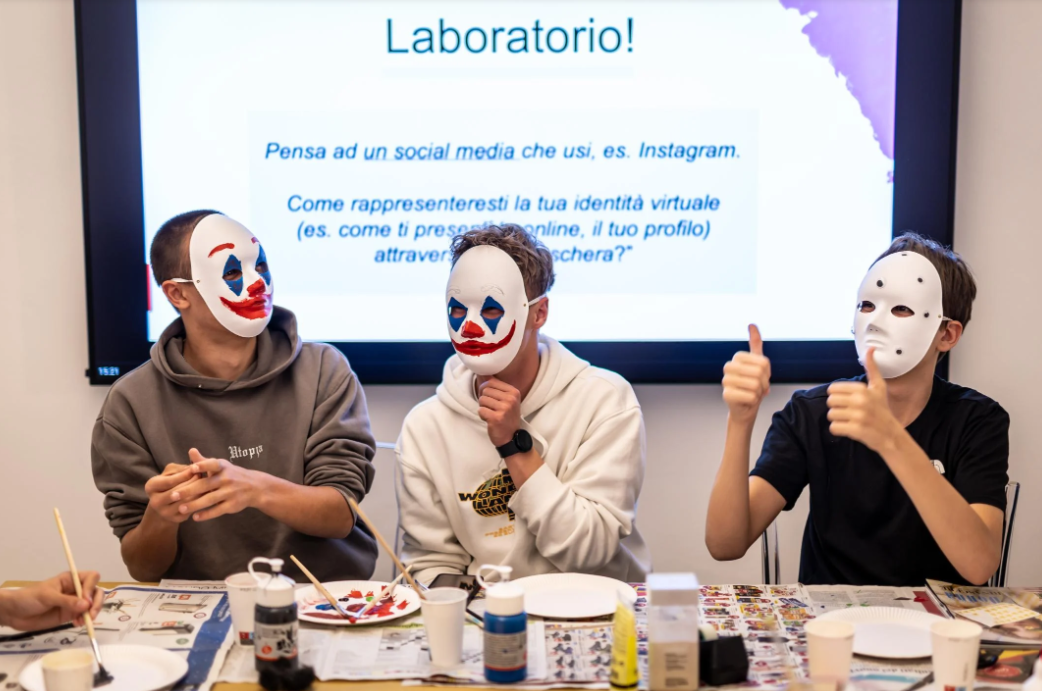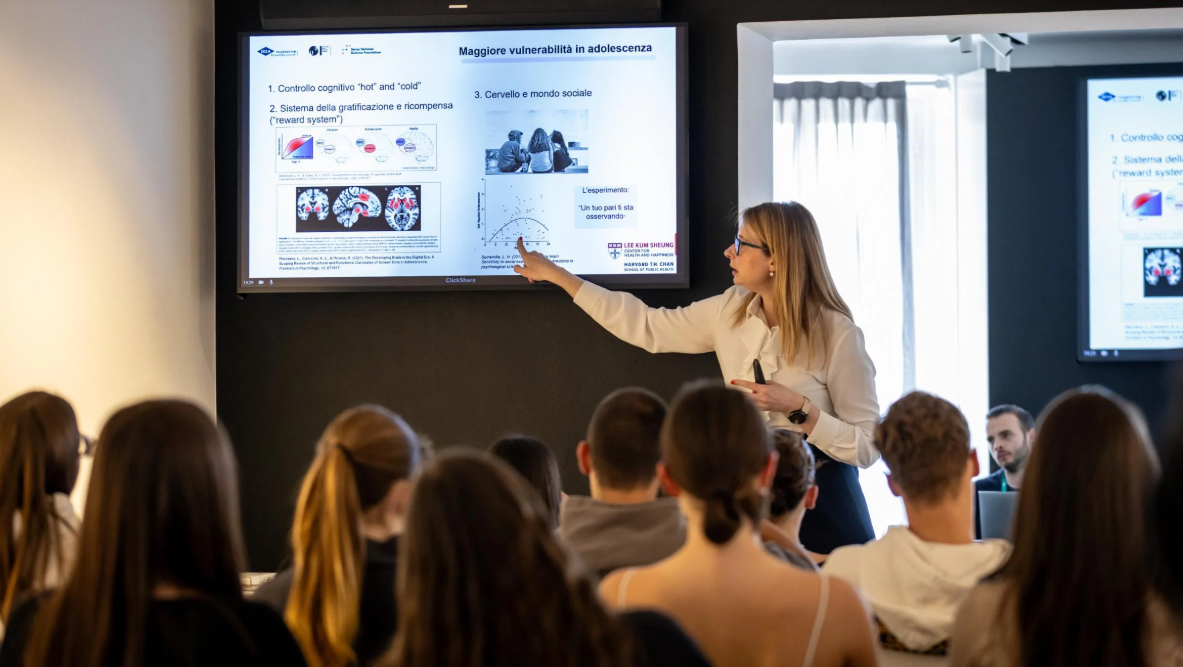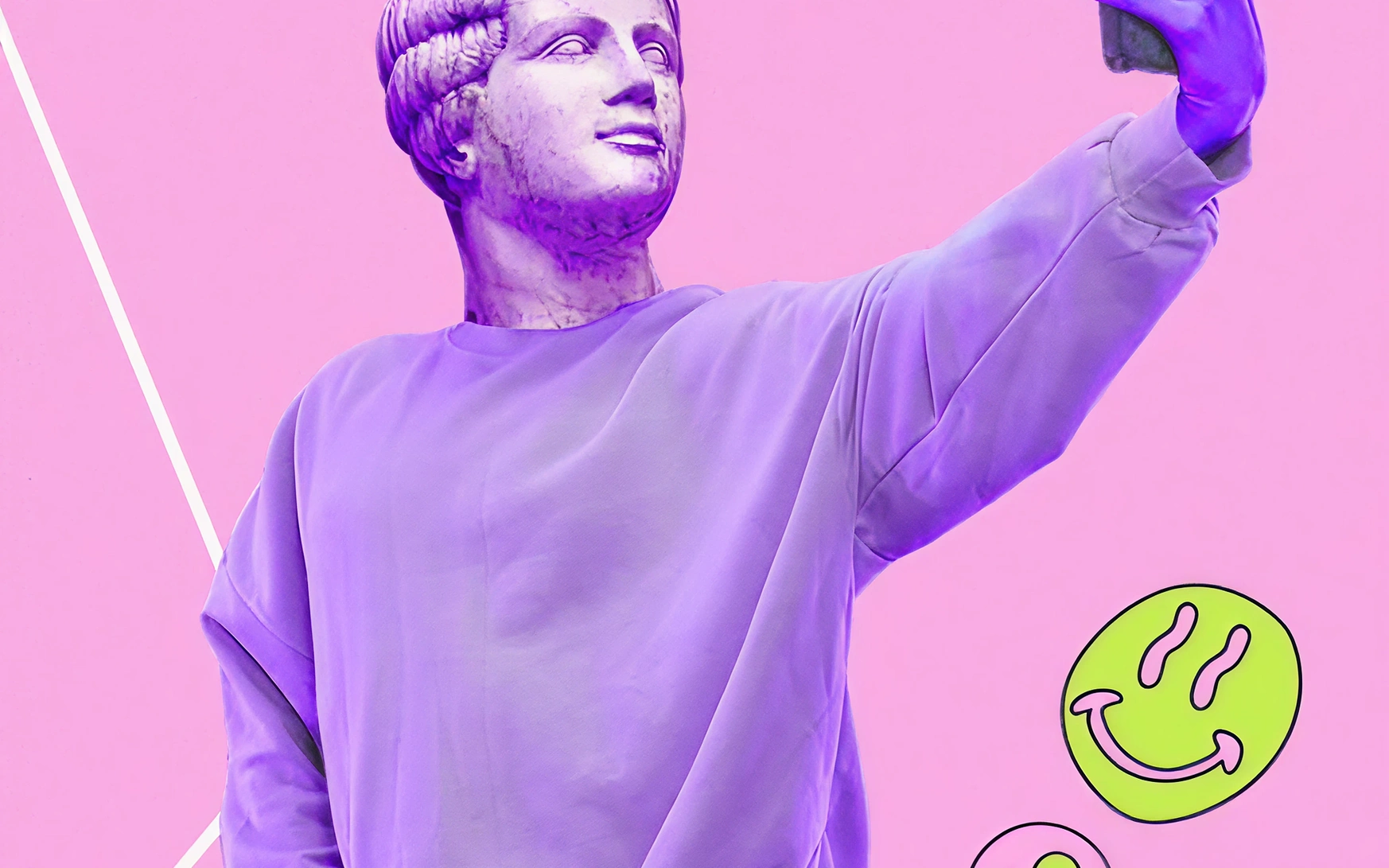
/ Projects
Workshops for teens and adults dedicated to active and conscious reflection on issues related to digital.
L*3
- The Happiness2.0 project is promoted by IBSA Foundation for Scientific Research, Università della Svizzera Italiana and Lugano Living Lab and is in its second edition. The project started in 2024 and was supported by the Swiss National Fund for Scientific Research (FNS). In its first edition, the project involved more than 400 students from high schools in Locarno, Bellinzona, Mendrisio and Lugano, in addition to the young people of the Amilcare Foundation.
Objective of the project: to explore the topic of well-being in the digital context and to encourage reflection on subjective happiness, personality development and the importance of social relationships. After the success of 2024, the Happiness2.0 project continues also for the 2024-25 and 2025-26 school years with the aim of offering a greater number of laboratories (HappyLab) to high school students in the Canton of Ticino. HappyLabs will also be offered for adult audiences. - Through HappyLabs, an attempt will be made to stimulate an active and conscious reflection on issues related to digital.
At the center of the initiative is confirmed the laboratory on masks, which invites us to reflect on the very concept of mask in society, both real and virtual. The news: for the 2025 edition, thanks to the entry of Lugano Living Lab, the new project partner for the 2024-25 and 2025-26 editions, a very topical topic will be introduced: artificial intelligence, today particularly relevant in the social media ecosystem.
Iscrizioni aperte agli Happy Lab 2025
- HappyLab for high school classes in the Canton of Ticino:
to join with your class, contact info@ibsafoundation.org - HappyLab for parents and adults, scheduled for Tuesday, May 6 at 18.00 at Casa Cattaneo, Lugano (limited places). To announce yourself: info@ibsafoundation.org
- It is also possible to apply for participation in HappyLab fall 2025 for parents and adults (dates being defined), always at the address: info@ibsafoundation.org
The experts involved
The workshops will be conducted by qualified experts in the field of psychology and communication, who will guide discussions and activities, thanks to their experience and expertise:
- Laura Marciano
- Harvard T.H. Chan School of Public Health, Lee Kum Sheung Center for Health and Happiness and scientific director of the project;
- Silvia Misiti
- Director of IBSA Foundation;
- Elena Marchiori
- Project leader Lugano Living Lab, City of Lugano and Professor of Digital Communication at USI
- Peter Schulz
- Professor of Communication Theories and Health Communication at USI.
- Dario Gennari
- Psychologist and Psychotherapist;
- Pietro Bianchi
- Psychologist and Research Assistant at USI.
Happy Lab
- The HappyLab is an experiential laboratory led by experts
- The HappyLab is an experiential laboratory led by experts, designed to stimulate active reflection on issues related to digital and personal growth. It combines theoretical moments and practical activities, involving participants in a direct and creative way. Every meeting is an opportunity to explore, understand and discuss current and relevant issues.
- HappyLab - Scientific introduction
- A scientific introduction that wants to involve and stimulate reflection in students.
Social media under the magnifying glass, between dialogue and experiment.
During the theoretical part of the event, the results of some research regarding the influence of social media on the lives of adolescents will be illustrated. Participants will be able to share their opinions on this topic through anonymous votes, encouraging an open and sincere dialogue. In addition, the experiment “Your equal is watching you” has highlighted how the human brain, specifically that of adolescents, is stimulated in a particular way when it comes to the opinion of others, especially in relation to people of the same age.
- A scientific introduction that wants to involve and stimulate reflection in students.
- HappyLab - The mask laboratory
- If we were to represent our digital identity on a real mask, what would it be like?
How many masks did Mr. Angelo Moscarda wear, the protagonist of Luigi Pirandello's most famous work “One, None and One Hundred Thousand”, and how many are the youngest wearing today!
It is precisely they, in debates, who tell of hiding behind filters on social networks, for fear of not being accepted or understood, in a paradoxical game of masks.
“I have two accounts: one serious and one where I publish little. In the private one with friends I place and I don't think if I had a good time or not. It's more fun to use the one with friends.” (A participant)
And it is precisely through the game, with the Create each of your own mask that the event provided an opportunity to tangibly explore the complex concept of identity.
The colored masks created during the workshop have become powerful visual symbols of the multiple facets of the ego that each participant carries with them, both consciously and unconsciously. This experience stimulated an inner dialogue and a discussion with the group on Meaning of truly being yourself in a world dominated by expectations and external influences.
- If we were to represent our digital identity on a real mask, what would it be like?
- Happy Lab - The Pyramid of Wellbeing
- What are the values that are fundamental to you? How do they approach or differ from your digital identity?
The workshops conclude with a reflection on the concept of Flourishing and well-being, exploring the various perspectives related to happiness. Children are invited to reflect on the question “What does being happy mean to you?” and to share their thoughts on magnetic blocks, classifying them according to their importance for their well-being within a pyramid of values.
In the era of social media, The search for happiness is intertwined with the management of our online image. The virtual world becomes a stage where people can choose how to show themselves and what to reveal about themselves to others. In this context, masks can help, making you feel safe from judgment and criticism, and giving the shyest the courage to express themselves and show sides of themselves that would otherwise remain hidden.
The use of filters and masks should not be condemned a priori. According to psychologists, these tools are not only expressions of vanity, but they can also be powerful means of personal expression and, if used with awareness, they do not prevent the construction of authentic and meaningful relationships.
- What are the values that are fundamental to you? How do they approach or differ from your digital identity?
Download
Links
Partners
No items found.
